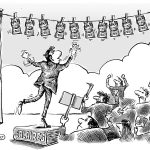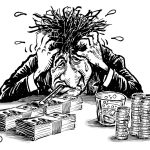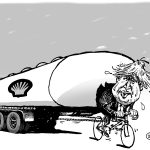A strong desire to escape
Caught between the pandemic and ecology, post-Covid tourism must redefine itself. An opportunity of valorization for investors.
All it took was the announcement of Pfizer’s vaccine progress to see air travel and tourism stocks and bonds rebound. This glimmer of hope, at the end of the pandemic and lockdown tunnel, will certainly not be enough to make up the lost path, nor to save all actors in the sector from bankruptcy or restructuring. Yet, isn’t it time to reexamine the future of tourism, and consider the investment opportunities that some may offer? From this point of view, resilience and transformation will be the criteria to put forward.
Even though it is still too early to speak of a return to grace, one thing is certain: the urge and the need to move beyond one’s borders have not disappeared. The business world has fallen back on virtual meetings, but the palliative finds its limits. Households who experiment lockdowns, and now relying of their accumulated savings, fully intend to take advantage of the end of the year celebrations to take a breath of fresh air, more or less far away. New, more efficient, understandable, and common health protocols are being rolled out in airports to facilitate the resumption of travel, fluid and reassuring for travelers.
Let’s not forget how much tourism represents a substantial economic and financial windfall for certain emerging economies (22% of Thailand’s GDP, to name just one), with no possibility of compensation by domestic flows – unlike Europe, for example, where some regions have benefited this summer from the redeployment of national and local tourism. The collapse in revenues, which often affects local sectors with weak financial foundations and precarious jobs, may well go as far as destabilizing some governments.
The pandemic has grounded us, but we all have ants in our legs.
However, mass tourism and transport have been ostracized. Accused of spreading the pandemic as of polluting the planet, while causing acculturation and dependence of populations. These criticisms are certainly not unfounded and the debate on the impact of tourism on climate change is far from over. But how can we reconcile the aspiration of the greatest number, the economic stability of many sectors and countries, and these equally legitimate concerns?
The awareness predates the pandemic. Some historical bankruptcies testify to the exhaustion of certain models. In order to protect themselves, some of our large cities have already limited and regulated access to overcrowded sites, or imposed limits on accommodation capacities. For their part, shipping companies and airlines are modernizing their fleets to meet more stringent requirements for carbon emissions and waste pollution. It goes without saying that business travel will be reviewed in the light of better-established necessities. As with other industries, the pressure to introduce a taxation of externalities is increasing. Will it be enough to change behavior?
There are other initiatives to consider at all levels of the production chain. The application of SRI / ESG criteria will constitute a key analytical framework. Taking into account not only the climate footprint but also the respect of destinations should be clearly calibrated and measurable. Investors will have the appropriate assessment and analysis tools at their disposal. The redeployment of large groups and the development of start-ups will help the sector evolve together.
The pandemic has grounded us, but we all getting restless. To make our footprint lighter, it will be up to investors to support new trends and promising niches (there are startups in this ecosystem too) in order to accompany the development of their promoters.
Original published in french in allnews.ch dated Nov 17 Cartoon © Barret



